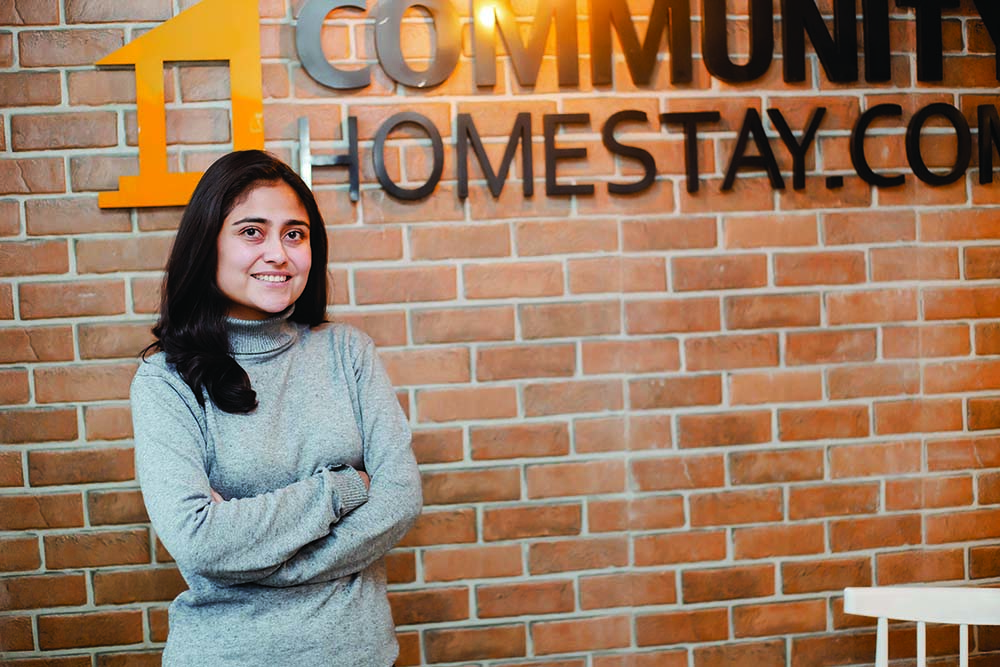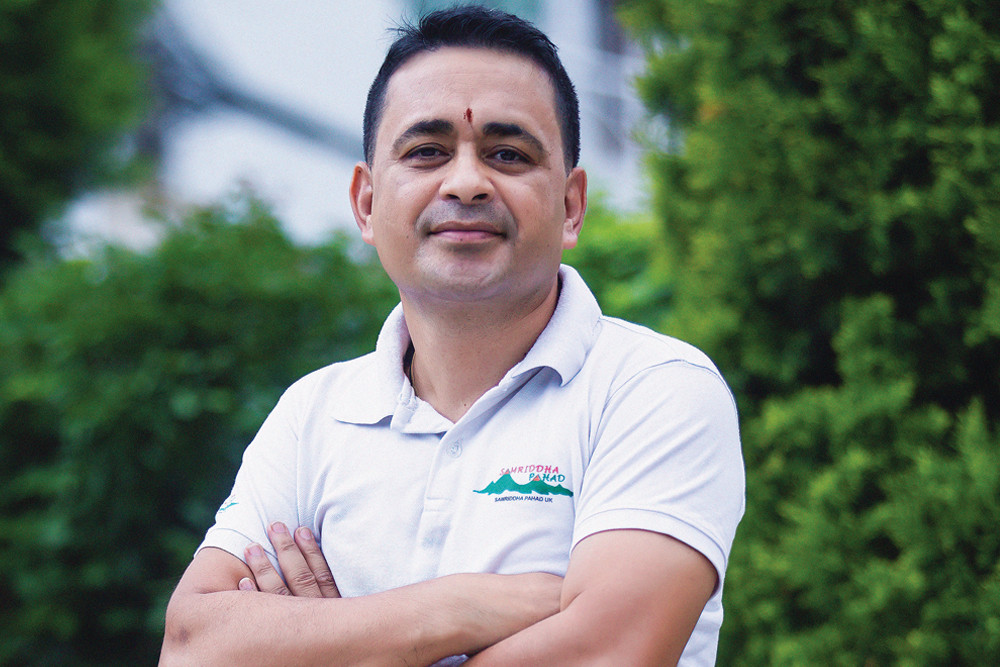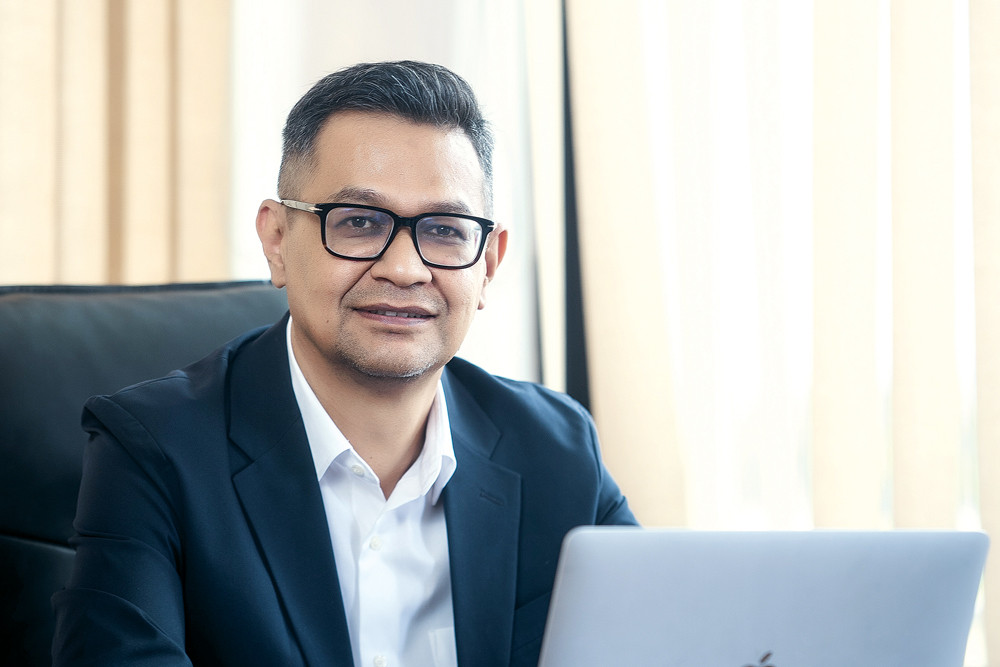
Aayusha Prasain, CEO of Community Homestay.com
Aayusha Prasain, CEO of Community Homestay.com is not one to compromise on her values; she believes that one needs to be able to stand up for what they believe in no matter what the consequences. Prasain is deeply interested in sustainable development. She says, “I am more focused on the business side of rural development. I want to help rural communities build economic and job opportunities and that is why what I do with Community Homestay is fulfilling for me.” Prasain feels good leadership is all about building good systems. “People will come and go but the vision and the goals of an organisation must always remain intact,” she states. In this edition of Business 360, we spoke to her about what leadership means to her and to learn more about her work.How do you define a leader?
Prior to joining Community Homestay, I was leading a team in a youth-led organisation called Teach for Nepal as the Alumni Affairs Officer. Working there gave me a broader picture of what leadership actually entails. Leadership is more about learning new things and unlearning at the same time. A leader, I believe, must be empathetic and approachable. Since a leader is a role model for so many people, they must be able to do the things they preach about.Is leadership ‘in-born’ or ‘acquired’?
I don’t think anyone is born with anything and it is the environment around them that influences and shapes them as a person. Leadership traits could be imbibed at a very early stage in life or may be later as time passes by but an enabling environment definitely plays a big role in whether an individual can go on to become a leader. I am here leading this organisation because of my past experiences. Family, friends and the work environment all play a big part in how one perceives things. For instance, if I want to explore something new but there is someone in the leadership position who does not trust my ability and restricts me, then I feel a leader will never be born. It is more about the enabling conditions.Who comes to your mind as ‘an ideal leader’?
Whenever someone asks me this question, there are two names that come to my mind. One is Dr Robert Chambers, an anthropologist. I come from the development background and during our studies, we have to go through theories of Dr Chambers who is also referred to as the founding father of participatory rural learning appraisal. The definition he set that development must be a bottom-top approach and we must not assume that people in the rural areas or who are less privileged do not have any inkling about development should be erased. I think that idea itself is a strong revolutionary notion, especially coming in the 80s when such concepts were very new. Even in the current times, there are a lot of organisations that have not been able to grow or develop in the actual sense in rural communities because we assume we know everything and do not need to learn anything. Since our organisation is a social enterprise working with grassroots communities to create community-based tourism, Dr Chamber’s theories have been a guiding light for me. The other person I adore is Dr Chandra Gurung about whom I don’t think I need to say much. He has worked a lot in eco-tourism and sustainable development and his ideas of Annapurna Conservation Area Project and Kanchenjunga Conservation Area are exemplary. I think his humbleness and deep-rooted commitment to the communities as well as taking those opportunities beyond the community at a national level and promoting community-based development have influenced me a lot. They have helped me shape my ideas as to how I should approach my work.When should a leader hand over the leadership position?
I believe that when the objective or goal of the organisation has been achieved, which could take three years or may be five, then it is time to hand over the leadership baton. However, one must make sure the team is ready to take over and the transition must not be abrupt. If you have served the purpose and enabled others to take over, then you should hand over the position. I don’t feel there is an age when leadership position should be transferred. Similarly, I believe there is no age criteria for when a person should be assigned the responsibility of a leader. Frankly speaking, if you had asked me a few years back I wouldn’t have believed I would be leading an organisation at this young age. However, the experiences that you gather and the opportunities that come your way do push you to take on the challenges of leading a team. I may not be perfect as a leader but I always give my best in whatever I do."Half the problem gets resolved if you sit and have a conversation with the other person. We often are so busy with our day-to-day work we forget the importance of sitting down together and having a meaningful conversation. Regular conversations with the team and also having the patience to listen to individuals are imperative."
Leading a tourism enterprise, what changes do you feel are required for the tourism sector at the moment?
I would say we need to change our approach, the way we market Nepal. At Community Homestay, we are trying to take a different approach, change the narrative in itself. As a working professional I am new to the sector but I was very fortunate to have got the opportunity to travel extensively with my family. Since my father was involved in the development sector, we used to travel a lot and through those journeys I know how a traveller must feel and how Nepal should be defined. That was always there and that’s why I was attracted to this job. The most important aspect is how we could promote the uniqueness of Nepal. We are very proud of the mountains and physical structures but we do not often promote the cultural and ethnic diversity of the country. We never hesitate to write about how Nepal is such a diverse country but we have not done enough to promote that fact. Whenever we ask any traveller where they would like to visit, they will often mention Pokhara or Chitwan and we send them to those places. The reason behind it is we have marketed those destinations so heavily that those are the only places that a visitor has in mind. I think the way we can correct the problems of over-tourism is through promoting alternate destinations. Promoting alternative destinations is the need of the time. This is for environment sustainability and also to diversify the income of rural communities. We need to be able to pass on the benefits of tourism to not only people of rural regions but also semi-urban places like Panauti for example. These areas are often neglected though they have high tourism potential. We should be asking ourselves on how we can increase the length of stay of travellers beyond trekking and mountaineering. Of course, that is there and must be promoted but we also need to explore different types of products or may be diversify the products themselves like wellness, spiritual, community-based or cultural travel.What are the challenges you often face while promoting the concept of homestays?
The concept of community homestays or village tourism started in the early 1990s and it was in the government’s five-year plan too. But we often tend to think of community homestay as just an accommodation-based service. Sometimes even among young people, this concept basically means a cheap accommodation alternative. That’s one of the challenges but I would say it is also an opportunity for us to change the misconception. What we are trying to do is not only provide accommodation but also build experiences around it. We are currently working with 25 community homestays and we try to build at least four experiences around each community which could be hiking, cycling, cooking or wildlife safaris. We want to engage more people from the community, diversify their income, and also increase the stay of the travellers in those particular regions. However, when doing so the other challenge is building community harmony. When we choose five houses in a community, then other houses may feel left out since they will not receive any benefit. We are trying to build more experiences so that more people from the community can be involved as local guides or drivers or maybe more women could be included for cooking classes.Any policy you would like to see changed immediately to foster homestays?
After the federal system of governance was adopted, the local governments have received a lot of authority in developing and promoting tourism activities in their respective areas. Local communities do have a lot of resources as of now but I think the understanding, dialogue and awareness are lacking. Even at the planning level, disbursement of budget is done in a haphazard manner. I feel more proper planning and implementation from the government bodies are required. Also, the private sector and government should not be looking at each other as two separate entities and should be working hand in hand if we want the entire tourism industry to flourish. While talking about community homestays, I think standardisation and certification are the need of the hour. There should be some minimum measures to designate a house for homestay. As a private sector company, we are doing our best and we have set minimum criteria while including any house to our network. But if the standards are drafted by the government through consultations with the private sector, then it would be so much better. Building strong partnerships is also very important. For instance, we partnered with ICIMOD last year which has been very fruitful in building community circuits around Kanchanjunga landscape starting from Ilam. Another partnership is with Gate College which is helping us curate training packages. At this point, we need to understand that we cannot achieve everything by ourselves, even if we do the ripple effect will not be big enough.Could you share with us any incident that tested your leadership ability?
There is an incident that has really tested me as a person. I had joined a multinational company, I don’t want to take names here, but I couldn’t work there for a long time. As a young person, you are often compared with the brand you are working with, however when your values do not align with the company’s working style you have to let go of that desire. The most important things for me are transparency and accountability from the management level. Since I noticed those were missing, I did talk to the management but once I realised things were not going to change, I decided to quit. There are times when you are young you are advised to do whatever the management says even if it is not mentioned in the job contract because it is such a big opportunity. But I think having the transparency and correct policy for every employee is so important and also the respect you accord to each employee. Sometimes in life you have to speak up and I think I stood up for my values and what I really believed in.How can a leader prepare for the unknown?
It is all about open communication. Half the problem gets resolved if you sit and have a conversation with the other person. We often are so busy with our day-to-day work we forget the importance of sitting down together and having a meaningful conversation. Regular conversations with the team and also having the patience to listen to individuals are imperative. At times we could be the reason why others are suffering so we should have the patience to hear them out and resolve the problem. Mediation always helps. If the organisation has a culture of open dialogue, then you are always ready for what could happen in the future. That is why I lay emphasis on having a good system in place. People and situations should not be guided by the individual but by a system of check and balance. That is what a good leader will always focus on and such leaders are often able to overcome any uncertainty that could arise in the future.How do you see the future of community homestays?
I see a very bright future for community homestays. Especially during the Covid times, there was a lot of introspection among the travellers and the community within the travel and tourism sector on how we need to approach tourism per se, how the benefits must be shared with the people who actually deserve it and not just limit it to the big hotels and resorts. Community homestays can be a force for sustainable and responsible tourism and I believe we need to work on it. We as a team are trying to change the narrative from homestays being just cheap accommodation alternatives to a more experiential and cultural travel experience. READ ALSO:- ‘Best thing to do is to ignore people who are critical’
- ‘I think there are challenges everywhere’
- It is always good to be over-prepared than under-prepared
- ‘A leader should not be bothered about what they receive in return for the work they do’
- Nepal's CHN wins 'Front Runners 2021 Travel Tech Competition' at WTM London summit
- CHN reconnecting with local communities for tourism recovery
Published Date: March 26, 2022, 12:00 am
Post Comment
E-Magazine
RELATED Leadership


.jpg)


.jpg)